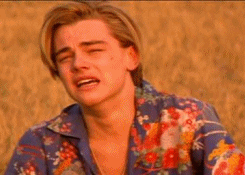EG: Everyone struggles with this! But let’s think about this pain as an opportunity to unpack why it’s so hard, though. I think the pain is not really about choosing the best photos. The pain is about figuring out ‘Who am I and what do I want to say?’ So when editing down your pile of photos, repeatedly ask yourself “Who are you and what do you want to say? Does this image support or enhance that vision I want to create?”

Here is a clip of me talking to one of my mentees about the difficulty and the value of editing your portfolio. Sorry I’m not as beautiful as young Leo.
JS: I really want to drop an updated version of the Ernest Hemingway quote about writing and bleeding at a typewriter. In all seriousness, editing can be a difficult and often lonely task. As I write this, I’m trying to motivate myself to put together a new edit of some portrait work over the past 2 years. I share this to say that even 10+ years in the biz, the task of breaking apart my work, figuring out what is successful/unsuccessful is still daunting and challenging. Beginning the process of editing is a lot like trying to floss daily or even jogging, both of these are activities that you don’t really look forward to but you know that they’re necessary. For me, I like to start with a couple of questions- “What’s this work about, and what do I want to say?” Be ruthless with your image selection- “does this image help advance your story/aesthetic?” LESS IS MORE. Having 8 incredible photographs with a consistent aesthetic will always better than a potpourri gallery of 17. Good editing takes time. Rome wasn’t built in a day and neither will your portfolio. Set a realistic deadline so you don’t put off this process. Do a little bit here and there, hit up a peer or 2 and over time the work will let you know when it’s ready to be out in the world.

CC: Because we’re often emotionally attached to our work and we know what it took to make certain images or think that a certain image should be included for whatever reason. I love the advice Emiliano and Jared gave above. Also, about 5 years into my career I hired someone to help me edit my portfolio. It was interesting to see what they ended up with and they noticed through-lines in my work to help it feel cohesive in ways I didn’t. In hindsight, I was at a point in my career where I wasn’t sure what I wanted to say and I let the editor mold my portfolio into what they thought it was saying which was helpful at the time. Since then I’ve had good and mediocre experiences with hiring editors and my friends have as well. Take any feedback and advice with a grain of salt, everyone’s opinion about your edit will be subjective. You know what you want to say best so if you work with an editor, make sure this is clear to them or you’ll have a frustrating experience. Think about what you want to say and where you want to go with your career and ONLY show the work that demonstrates this. Eliminate redundancy, your portfolio needs to be a succinct edit that also shows the breadth of your skill and clearly communicate your style. If something doesn’t fit in with the rest of your work it’ll only confuse people or dilute the existing work.
